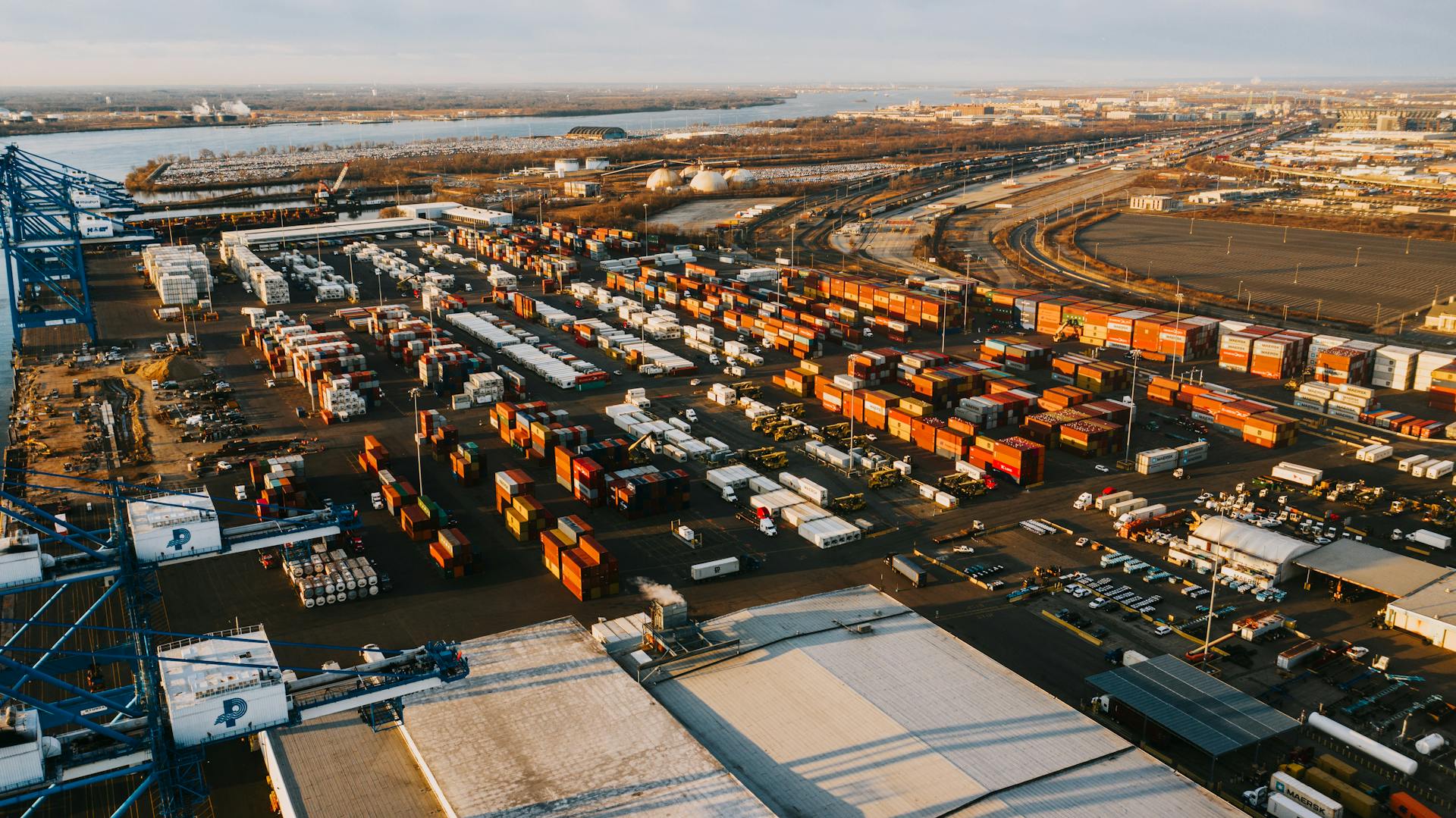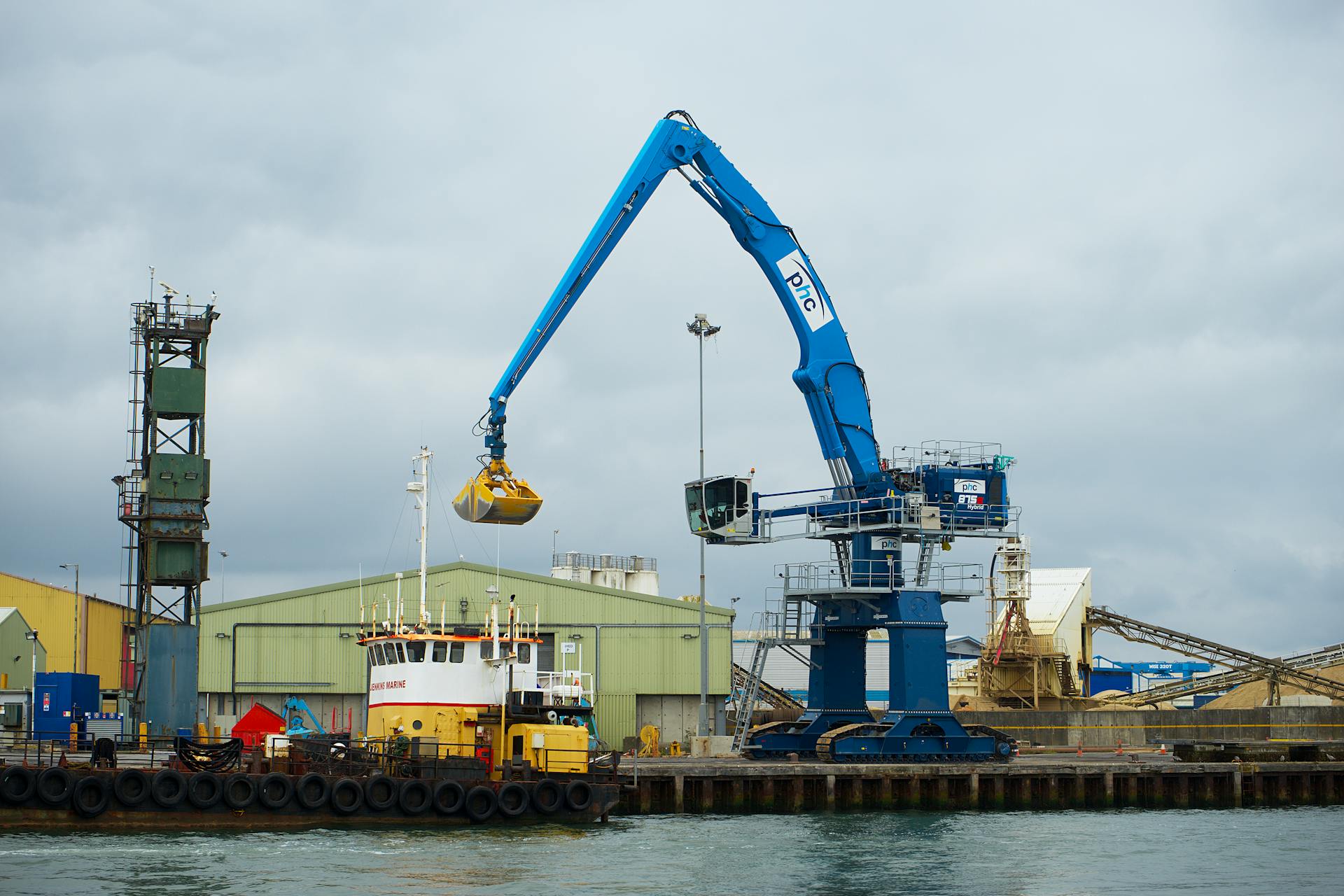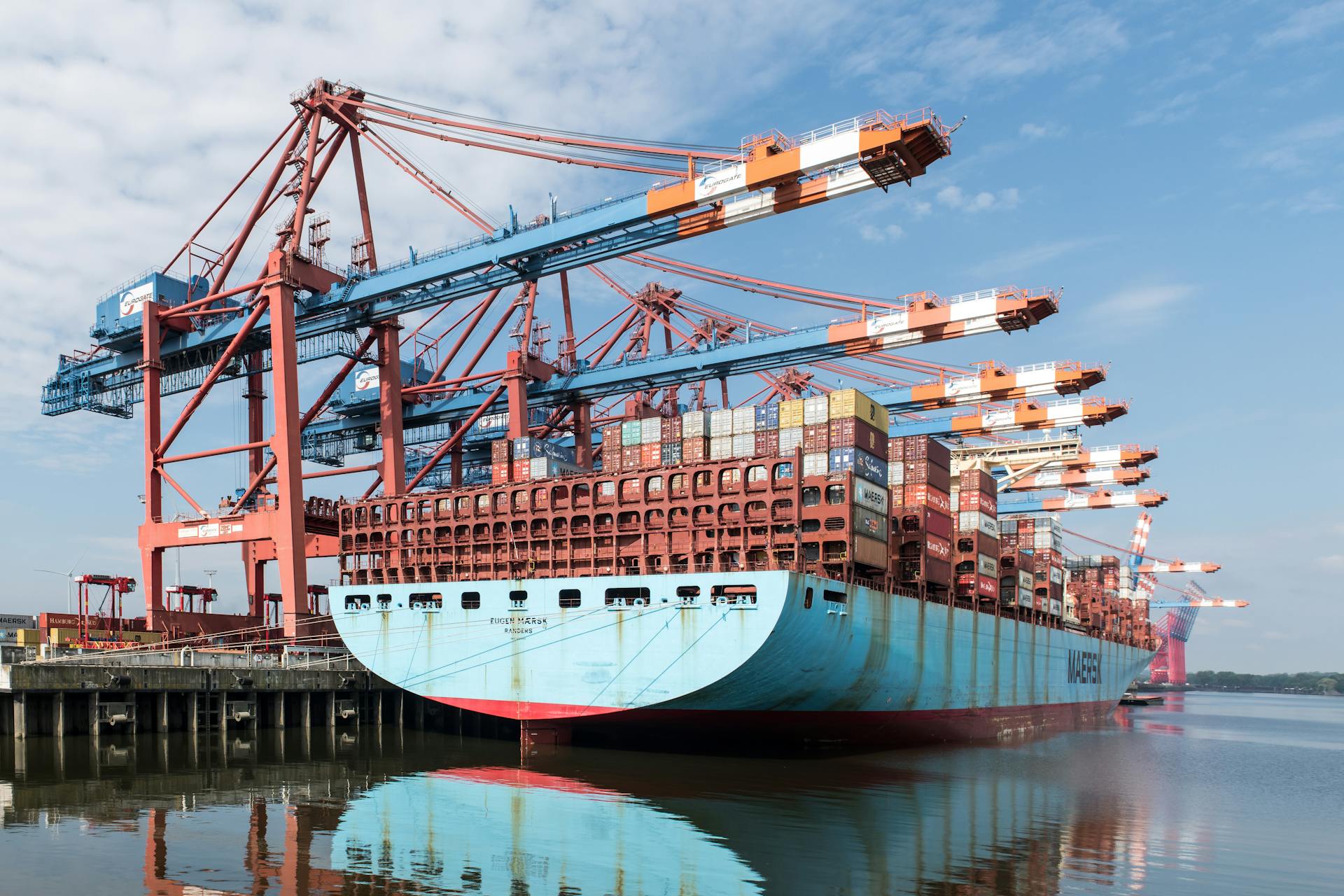
As you're about to embark on an international shipping journey, you need to know the difference between Ex Works and FOB. Ex Works, or EXW, is a shipping term that means the seller is only responsible for making the goods available at their warehouse or factory. This means you, the buyer, are responsible for loading the goods onto a truck or into a container.
In contrast, FOB (Free on Board) is a shipping term that means the seller is responsible for loading the goods onto a ship or a truck. This shifts the responsibility to the seller, who will load the goods and make them available for transport. The key difference between the two is who bears the cost and responsibility for loading the goods.
The choice between Ex Works and FOB depends on various factors, including the type of goods being shipped, the distance to the buyer's location, and the level of service required. If you're shipping goods that are heavy or bulky, Ex Works might be a more cost-effective option. However, if you need a more hands-on approach and want the seller to take care of loading the goods, FOB might be the better choice.
Ultimately, choosing between Ex Works and FOB requires careful consideration of your shipping needs and requirements.
Broaden your view: Cost vs Wholesale vs Retail
What Is Ex Works vs FOB
Ex Works vs FOB: What's the Difference?
Ex Works is a shipping term that means the seller is responsible for making the goods available at their premises, but the buyer is responsible for loading and transporting them.
FOB, on the other hand, means the buyer assumes responsibility for the goods being transported once they're loaded onto the ship at the origin port.
With Ex Works, the buyer takes on more responsibility for transportation and logistics, but they also have more control over the shipping process.
Under FOB, the seller retains responsibility for all charges and risks until the goods are loaded onto the ship, but this can lead to delays if the seller lacks relationships with specialized carriers.
FOB can be broken down into two arrangements: origin and destination, but it's worth noting that heavyweight or oversized shipments can be especially susceptible to delays under FOB terms.
Ex Works terms of sale, like those offered by freight forwarders, can provide buyers with more flexibility and control over their shipping process, and avoid potential delays caused by seller-managed transportation at origin.
Readers also liked: Cargo Ship vs Container Ship
Shipping Costs and Responsibilities
With Ex Works, the buyer bears all costs from the time they pick up the goods at the seller's location. The seller's sole responsibility is to have the goods packed for shipping and make them available for the buyer to pick up.
In contrast, with FOB, the seller is responsible for the costs associated with getting the goods to the port and loaded onto the ship. The buyer is responsible for shipping costs from the port to their location.
The buyer is responsible for all shipping costs when shipping with Ex Works, but with FOB, the seller is responsible for shipping costs to the port, and the buyer takes care of the rest.
You might like: Ex Factory vs Ex Works
Shipping Costs
Under the Ex Works (EXW) shipping term, the supplier doesn't include costs of transport to the port, loading charges, or export duties applicable.
The supplier's responsibility ends at the seller's premises, leaving the buyer to arrange and pay for the rest of the shipping process.
In Ex Works, the buyer is responsible for all shipping costs, which can be a significant expense.
The buyer must also arrange for the loading of the goods onto the ship or other transportation method, adding to the overall cost.
With FOB (Free on Board), the seller is responsible for shipping costs to the port, but the buyer is responsible for shipping costs from the port to their location.
This can be a more favorable option for buyers who have a local port or prefer to handle their own shipping arrangements.
Recommended read: Shanghai Port vs Qingdao Hainiu
Responsibility
With Ex Works, the buyer bears almost all the responsibility for the goods, whereas the seller's sole responsibility is to have the goods packed for shipping and make them available for the buyer to pick up.
The seller is responsible for packing the goods, delivering them to the outgoing port, and loading them on the ship under FOB.
In contrast, Ex Works terms of sale put more work, responsibility, and control on the buyer, which can be overwhelming for small businesses without the necessary shipping and trade compliance staff.
Recommended read: Incoterms Exw vs Fca
Under FOB, the seller is responsible for the costs associated with getting the goods to the port and loaded onto the ship, which can be a significant financial burden for the seller.
The buyer has full control and responsibility for all aspects of transportation and logistics with Ex Works, meaning they are solely responsible for arranging and managing the entire shipping process.
FOB grants the buyer more control over the entire shipping process, allowing them to choose the shipping line, negotiate rates, and determine the most efficient route for transporting the goods.
See what others are reading: Incoterms vs Fob
Import Duties
When shipping goods internationally, import duties can be a significant concern. The seller is responsible for paying export duties under FOB, but the buyer is responsible for paying import duties.
The type of shipping arrangement can greatly impact who pays for import duties. For FOB, the seller must deliver the goods cleared for export on board the selected vessel, which means they must pay for export clearance and cover all taxes, duties, and documentation in the country of origin.
If this caught your attention, see: Fca vs Fob Incoterms
Under EXW, the seller is only responsible for making the goods available to the buyer at the named location, so all export procedures are the buyer's responsibility. This includes paying for export duties.
Here's a comparison of who pays for import duties under FOB and EXW:
Free On Board (FOB)
Free On Board (FOB) is a shipping term that indicates the point at which the buyer assumes responsibility for the goods being transported. It can be broken down into two arrangements: origin and destination.
Under FOB origin, the seller is responsible for the goods' transportation until they reach the designated shipping point, and then ownership passes to the buyer. This means the seller has to pack the goods for shipping, deliver them to the port, and load them onto the boat.
The seller retains responsibility for all charges and risks until goods are loaded onto the ship at the origin port. This includes costs and risks associated with transportation, which can be a concern for buyers.
Check this out: International Certificate of Origin Guidelines
With FOB, the buyer assumes all risks, obligations, and expenses once the goods are on the boat. This means the buyer is responsible for any issues that arise during transportation.
FOB destination, on the other hand, means the seller assumes responsibility from start to finish, paying all necessary transportation costs until delivery is made and ownership is transferred to the buyer. This can be beneficial for buyers who want to avoid some of the responsibilities associated with international shipping.
Buyers need to be careful about over-reliance on the seller if they want to keep their supply chains running smoothly. A seller may rely on only one or a few carriers to transport goods to the port, which can cause delays during busy periods.
Heavyweight or oversized shipments can be especially susceptible to delays under FOB terms if the supplier does not have relationships with specialized carriers needed for such loads.
Recommended read: Why Does Trump Want to Tariff Canada
Key Differences and Suitability
EXW places the burden of transportation and logistics entirely on the buyer, while FOB grants the buyer more control and responsibility for the goods once they are on board the vessel.
The key differences between EXW and FOB lie in the point at which risk transfers from the seller to the buyer. For EXW, the buyer takes on all costs and risks from the start, whereas for FOB, the risk transfers once the goods are loaded onto the vessel.
Here are the key differences between EXW, FOB, and FCA in a concise format:
- EXW: The seller makes goods available at their location, while the buyer takes on all costs and risks for transportation, including loading and customs duties.
- FCA: The seller delivers goods, cleared for export, to the buyer’s chosen carrier at a specified location.
- FOB: The seller loads goods onto the vessel at the shipping port, transferring risk to the buyer once loaded.
FOB is limited to sea transport, whereas FCA applies to all transport modes. This makes FCA a more versatile option for buyers who need to manage logistics across different modes of transportation.
Suitability
EXW is most suitable for experienced buyers who want total control over shipping and have established logistical capabilities. They can handle the added responsibilities and risks that come with this term.

For buyers who prefer sellers to handle the initial shipping stages and export processes, FOB is more appropriate. This is because FOB grants the buyer more control and responsibility for the goods once they are on board the vessel.
EXW can be used for all modes of transportation, whereas FOB mainly applies to maritime and waterway transport. This is because FOB's shipping rules are closely related to the vessel.
Buyers who are prepared to handle all logistics from the seller's door, including export clearance and loading, may find EXW a suitable option. This term gives buyers maximum control but comes with increased responsibilities and risks from the start.
In contrast, FOB works well for maritime shipments, allowing sellers to manage export formalities and load the goods onto the vessel. Here, risk transfers to the buyer once the goods are on board, easing their initial obligations while still requiring them to manage sea freight and later processes.
Large shippers may welcome the added responsibilities that come with EXW terms of sale, as they have the shipping and trade compliance staff to economically manage the details.
For your interest: Import Export Business Course
What Sets FCA Apart

FCA stands out from EXW and FOB in terms of responsibility. The main difference lies in when the seller's responsibilities end and when the buyer takes over.
In FCA, the seller delivers goods, cleared for export, to the buyer's chosen carrier at a specified location. This is in contrast to EXW, where the seller makes goods available at their location, leaving the buyer to arrange transportation and handle customs duties.
FOB is another Incoterm that differs from FCA. In FOB, the seller loads goods onto the vessel at the shipping port, transferring risk to the buyer once loaded.
Here's a quick comparison of the three Incoterms:
- EXW: Seller makes goods available at their location, buyer takes on all costs and risks for transportation.
- FCA: Seller delivers goods, cleared for export, to the buyer's chosen carrier at a specified location.
- FOB: Seller loads goods onto the vessel at the shipping port, transferring risk to the buyer once loaded.
FCA is compatible with all modes of transportation, giving buyers more flexibility in their logistics arrangements.
Pros and Cons of Ex Works and FOB
EX Works (EXW) and Free on Board (FOB) are two popular Incoterms that can be used in international trade. EXW is a good option if your operations are only local-based and you don't have the permit or experience with exporting goods.
One of the main benefits of using EXW is that the buyer gets a clear picture of their total cost since most of the responsibility falls on them. However, the buyer also takes on the risk of dealing with the export clearance in the origin country, which can be a challenge if they don't have the necessary documents or expertise.
FOB, on the other hand, is usually a good option if you don't have experience with export and transport in the country of origin. The seller will be responsible for clearing the goods and arranging the domestic transport, making it a more affordable solution.
The biggest risk for the buyer when using FOB is dealing with inexperienced or unprofessional sellers/freight forwarders, which may result in losses. Sellers should only agree to ship under FOB if they indeed have the experience to arrange all export procedures and transport themselves.
Here are some key differences between EXW and FOB:
In general, EXW is better suited for nonperishable, low-risk goods, while FOB can be a good option for bulk goods that will travel by boat. The choice between EXW and FOB will depend on several factors, including the type of goods, budget, customs experience, and bargaining power.
How to Decide
Deciding between Ex Works (EXW) and Free On Board (FOB) requires careful consideration of several factors. If you're struggling with this decision, here are some key points to keep in mind.
EXW is ideal for buyers with strong logistics capabilities who want full control over the supply chain. They handle all transport arrangements and costs, providing complete control over the shipping process.
However, EXW significantly increases the responsibilities placed on the buyer, making it a better option for experienced buyers who are familiar with international logistics and have trusted partners in place to ensure smooth operations.
On the other hand, FOB is beneficial when the seller is close to a port and has delivery capabilities, allowing for efficient transportation and loading of goods. It also empowers buyers who seek greater control over freight carriers and associated costs.
To help you decide, consider the following factors:
- Buyer’s experience with managing logistics in the seller’s country. If this experience is strong, EXW can work.
- Relationship with supplier. If you have a strong, long-term relationship with the seller and trust their ability to coordinate shipment details at origin, FOB may be a better option.
- Control over costs. If you want this control as a buyer, it's EXW, which allows you to choose transportation partners and negotiate rates directly.
- Risk tolerance. Ex Works terms of sale come with more control, but also more risk for the buyer. If you want to deflect some of that risk, opt for FOB.
Ultimately, the decision between EXW and FOB depends on the specific needs and circumstances of each trade transaction. It's crucial to carefully consider the risks, costs, and level of control desired before making a choice.
Frequently Asked Questions
What does EXW mean in shipping terms?
EXW stands for Ex Works, a shipping term that means the seller makes goods available at their premises, but is not responsible for loading or exporting them. This incoterm places minimal responsibility on the seller, making it a cost-effective option for buyers.
What is the disadvantage of using EXW?
Under Ex Works, the buyer assumes the risk of damage or loss to the goods during loading, which can be a significant disadvantage. This means the buyer bears the financial burden if the goods are damaged during loading.
Who pays for shipping under EXW?
Under EXW, the buyer is responsible for all shipping costs, including loading, transportation, and customs fees. This means the buyer covers the entire shipping process from pickup to delivery.
Sources
Featured Images: pexels.com


